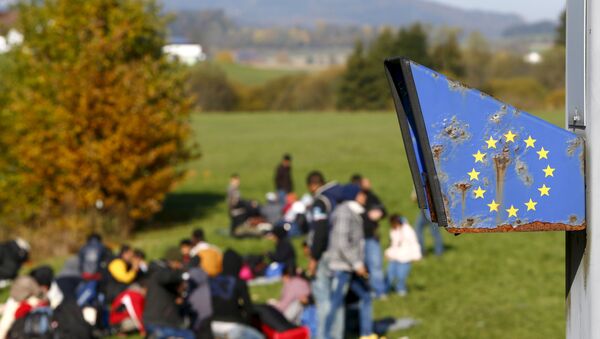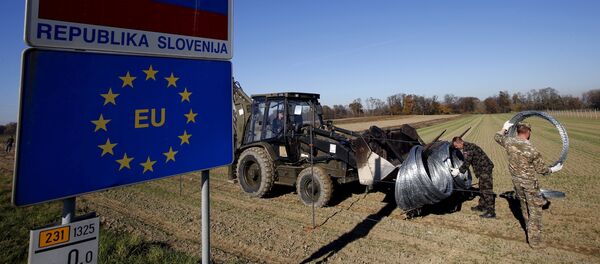On November 13, France declared a state of emergency and closed its borders following a series of deadly attacks carried out by extremists in Paris, which claimed the lives of some 130 people and injured at least 350. The Islamic State (ISIL) terrorist group claimed responsibility for the attacks. ISIL terrorists behind the attack could allegedly have arrived in the country under the guise of refugees.
"The expanding fences along Europe’s borders have only entrenched rights violations and exacerbating the challenges of managing refugee flows in a humane and orderly manner. Giving in to fear in the wake of the atrocious attacks on Paris will not protect anyone," Amnesty International’s Director for Europe and Central Asia John Dalhuisen said in a report entitled "Fear and Fences: Europe's Approach to Keeping Refugees at Bay."
According to the report, EU member states built over 146 miles of fences along the borders between Hungary and Serbia, Bulgaria and Turkey, Spain and Morocco and Greece and Turkey.
The European Union is currently struggling to cope with a massive refugee crisis, with hundreds of thousands of people leaving conflict-torn countries in the Middle East and North Africa for Europe. Over 1.2 million illegal border crossings have been detected by the EU border agency Frontex since the beginning of 2015.




